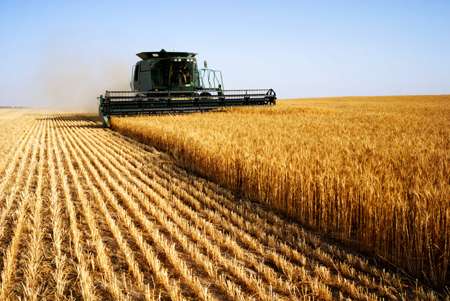Temporary farm bill leaves many farmers on-the-cliff
Category: Policy
 (Southeast Farm Press) – While the majority of tax-paying Americans avoided going over the proverbial ‘fiscal cliff’ as 2013 came to life, most farmers are left wondering what the nine-month extension to the 2008 farm bill will really bring for them in the upcoming cropping year.
(Southeast Farm Press) – While the majority of tax-paying Americans avoided going over the proverbial ‘fiscal cliff’ as 2013 came to life, most farmers are left wondering what the nine-month extension to the 2008 farm bill will really bring for them in the upcoming cropping year.
The extension was reached primarily via negotiations between Senate Minority Leader Mitch McConnel and Vice-President Joe Biden.
For row crop growers in the Southeast, the extension means at least a temporary business as usual approach to planning 2013 crops.
For cotton and peanut growers, in particular, it is a temporary reprieve, which may help these traditional Southeastern crops compete better for acreage with grain crops.
The full Senate and the House Agriculture Committee earlier this year agreed to permanently eliminate direct payment subsidies for commodity production, regardless of price and income conditions, yet the deal would lock in these subsidies for another full year at a $5 billion price tag.
Soybean, corn and wheat growers nationwide seem to be the biggest winners with the temporary farm bill fix.
(The American Soybean Association sees some good in the extension, but is asking Congress to commit to a new farm bill. For those comments, click here. Meanwhile, the National Corn Growers Association says Congress’ farm bill failure hampers America. For those comments, click here).
Rural economies hoping to rebound from a dismal post-recession recovery, on the other hand, took a direct hit from the 2008 farm bill extension.
For the next nine months, at least, getting started as a young farmer will continue to be financially impractical at best.
All of the targeted programs, such as the Beginning Farmer and Rancher Development Program (BFRDP) to the National Organic Cost-Share Program to the Value-Added Producer Grant Program (VAGP), were completely left out of the last minute agreement.
Impact on conservation
Conservation leaders are also dismayed that the temporary farm bill alsohas the effect of keeping farmers from being able to improve soil and water conservation through enrollment in the Conservation Stewardship Program at the present time.
Some contend the temporary farm bill prevented the dairy industry from going over the cliff, while others contend there is no long-term fix for the industry’s long-running financial challenges.
In the short-term, the temporary farm bill should prevent milk prices from doubling, as has been predicted, if no farm bill is passed.
Senate Agriculture Committee Chairwoman Debbie Stabenow, D-Mich., said she considers the slimmed-down extension to be “Mitch McConnell’s version of a farm bill.” She was referring to the Senate Republican leader from Kentucky, who she said forced bargainers to accept the version of the farm bill that appeared in the deal.
McConnell spokesman Michael Brumas says, “Sen. McConnell put forward a bipartisan, responsible solution that averted the dairy cliff and provided certainty to farmers for the next year without costing taxpayers a dime.”
Also left out of the temporary fix for the farm bill is any disaster aid for livestock and fruit producers. The deal also has the effect of keeping farmers from being able to improve soil and water conservation through enrollment in the Conservation Stewardship Program at the present time.
“The message is unmistakable — direct commodity subsidies, despite high market prices, are sacrosanct, while the rest of agriculture and the rest of rural America can simply drop dead,” says Ferd Hoefner of the National Sustainable Agriculture Coalition.
Dana Peterson, who heads the National Association of Wheat Growers says, “We are pleased that leaders in Washington came to some agreement on fiscal and tax policy for our nation that includes an extension of farm policy through the 2013 wheat growing season.
“This will allow our nation’s farmers to know the parameters of tax policy and the farm safety net for spring planting decisions and allow continued operations of critical foreign market development programs. “However, the extension of the 2008 farm bill is not ideal and we are concerned about unknown implications of automatic spending cuts, known as sequester, which are now postponed,” she adds.
The White House fact sheet on the big fiscal deal gives only a cursory mention of the Farm Bill.
It says, “The farm bill extension will avoid the doubling of milk prices that would have kicked in automatically in the absence of any farm bill — a phenomenon that came to be known as the “dairy cliff”.
“Unfortunately,the extension bears little resemblance to a new reform-aimed farm bill Congress worked on all last year. And, it offers little long-term hope for most farmers that the government will provide the needed safety net needed to significantly reduce the risk that most growers face daily in production of the nation’s food and fiber.”




